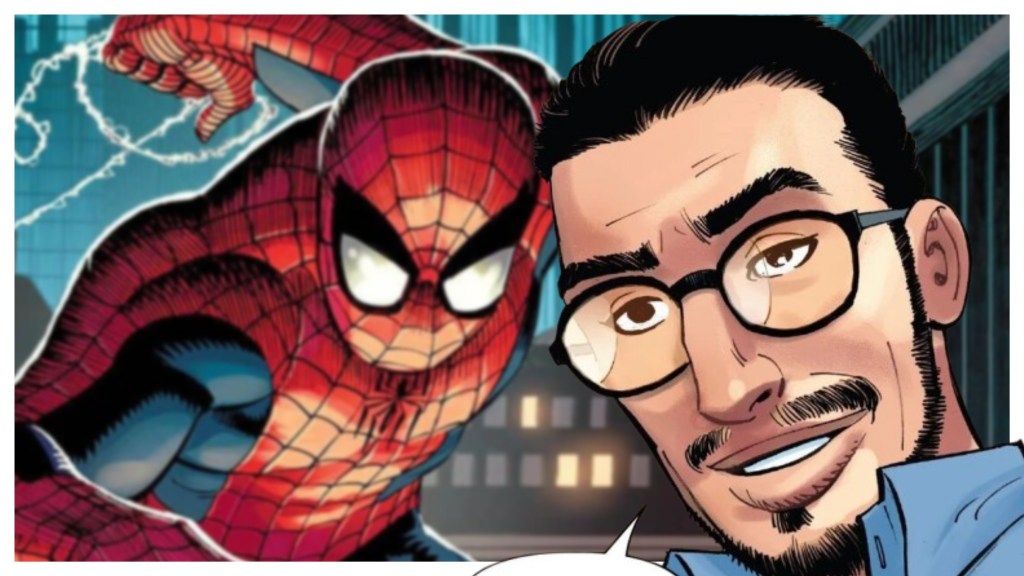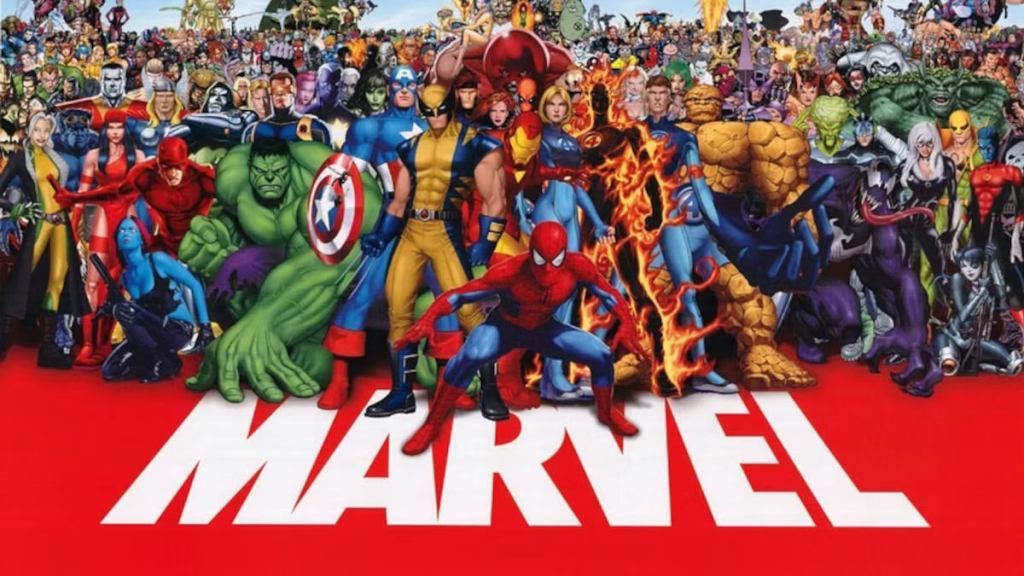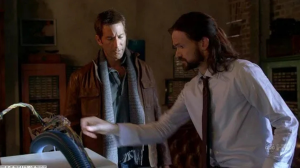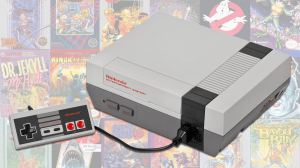Marvel has long been the top name in superhero media. The MCU may not be the juggernaut it was, but it’s still the biggest fish in the superhero cinema pond. Marvel’s comics are also the top selling in the American superhero comic industry, controlling the vast majority of the top fifty. DC Comics is the number two, but things have been subtly changing in 2024 and 2025. Marvel’s Ultimate line was the big sales success of the first half of 2024, but DC’s Absolute line has taken that title. The Absolute books have become the industry’s most powerful line, but that’s not all. While Marvel’s comics still sell better overall, it’s hard to say that Marvel fans are happy with the direction of the company. Meanwhile, DC’s main line of books is impressing readers in ways that Marvel just isn’t, telling great new superhero stories that combine the best of classic DC with new ideas. Marvel has all the power, but DC is eating the publisher’s lunch with their superior lines.
Videos by ComicBook.com
Marvel was once known as the House of Ideas, but it feels like all of the ideas have long since dried up. Marvel’s hindbound editorial staff has charted the company’s course towards the iceberg, squandering some of the greatest superheroes and supervillains. Marvel is floundering in every way, but that doesn’t mean it’s hopeless. Marvel still has some great books, and the publisher could easily takes back reader esteem. It just needs to do some things that the publisher hasn’t done in a long time.
Marvel’s Obsession With Its Past Is Proving To Be Its Downfall

Marvel was able to change comics forever because, well, they changed comics forever. Marvel heroes in the Silver Age were completely different from their distinguished competition; DC’s heroes were the “adults in the room”, and Marvel’s heroes were adults like they really were. They were messy, they made mistakes, they were human. They all knew each other. Marvel gave readers a new superhero paradigm and that’s what made Marvel popular. It was Marvel’s greatest weapon, and they used it throughout the Silver and Bronze Age. The last gasp of Marvel as a creative force was the 1980s, when creators like Chris Claremont, Frank Miller, J.M. DeMatteis, Ann Nocenti, Walt and Louise Simonson, John Byrne, and more all started to take superheroes in new directions again, bringing more maturity to superhero comics than ever before. Since then, we’ve been stuck in a cycle of diminishing returns, especially since Marvel started owning the sales charts back in the ’90s.
Marvel has had some great ideas since the ’80s, obviously. For example, Heroes Return made Captain America, Avengers, Iron Man, The Mighty Thor, and to a lesser extent Fantastic Four great again. The original Marvel Knights line brought a Bronze Age feel as well as an indie sensibility to Marvel. Joe Quesada remade Marvel in the early ’00s. However, all of these reboots had something in common — a back to basics approach. All of these great ideas took the original ideas of the Marvel Universe and brought them back to the ideas that Stan Lee stole from Jack Kirby and Steve Ditko and said were his ideas. The best example of this is, of course, Spider-Man.
RELATED: DC Just Extended an Absolute Series
Spider-Man was the ultimate Marvel hero. He was the personification of Marvel’s heroes with feet of clay idea, but more than that, he grew with the reader. Spider-Man was just like us and while his life obviously was eternal and moved slower than ours, it still changed. He matured. That’s why his marriage made so much more sense; Spider-Man was a character who was meant to grow. However, Joe Quesada and Tom Brevoort, middle-aged men who thought the Spider-Man comics they grew up with were better than the ones that I grew up with, decided that Spider-Man seemed too old and that was the reason why the book wasn’t selling well and not, say, stories like the Clone Saga or Howard Mackie and John Byrne’s reboot of Spider-Man that was terrible. The irony of the situation was that the then-current J. Michael Straczynski run of The Amazing Spider-Man was beloved and sold well, and also revolved around the marriage. However, the culture at Marvel, enforced by editors and handed down, is that the original ideas of Marvel are the only good ideas, like a young Spider-Man who always screwed up and had the worst life imaginable. For some reason, getting rid of his marriage in order to keep a useless character like Aunt May around was looked at as the correct course of action. This is Marvel’s biggest problem.
How many “back to basics” Avengers approaches have failed since Hickman left the Avengers books in 2015? The answer is all of them. The current “From the Ashes” X-Men publishing initiative is borrowing multiple ideas from the past of the X-Men and putting them forward again. Marvel’s one idea is always to bring things back to the status quo, a status quo created decades ago. And look, there are some great Marvel books right now. The Ultimate line is great. Uncanny X-Men is taking its Claremont inspirations and running with them, telling great character focused stories. Fantastic Four is a return to form for the comic. I’m sure there are others. However, this idea that everything was better back in the day and that the status quo is king ignores everything great about Marvel. Just look at Claremont’s Uncanny X-Men, a seventeen year run that morphed into something new every so often, or Peter David’s The Incredible Hulk. That’s great Marvel. Constantly recycling Kirby and Ditko’s ideas that Stan took credit for? That was great Marvel, sixty some-odd years ago. Time to move on.
Marvel Needs to Forget the Old and Devote Itself to the New Again

DC is doing something interesting right now. Instead of running back to the last time that they were number one, they’re just telling stories. There’s amazing things happening across the line. DC works best when there’s an equilibrium of the old and the new. Marvel, on the other hand, is at its best when it throws out the rule book and goes in wild directions. That’s why the ideas of editors like Tom Brevoort and Nick Lowe — that the past was better and we need to recapture that — go so wrong. We’ve read these stories before. Look at Dan Slott’s run on The Amazing Spider-Man. It was at its best when it was doing something different. “Spider-Island”. “Spider-Verse”. Superior Spider-Man. Peter’s corporate arc. Slott’s run is full of great stories, but the problem is that it all goes back to the status quo instead of moving forward from a new place. This is what Marvel does now — the best runs go in wild directions, and then the end sees everything put away, going back to the blank slate of a status quo created before many of the readers were even born.
It’s funny that Marvel’s current editorial regime keeps thinking that Marvel succeeded back in the day because of the status quo and not because of the change that made reading Marvel books an entirely new comic reading experience. Marvel thrives on change, on stories building to the next one, not just resetting to the status quo. Marvel needs to get rid of the last gasps of the Quesada regime — Brevoort, Lowe, Cebulski, White — and get some new blood in there who want to do exactly what Marvel used to do — change. It’s the only way to get back on top.
What do you think? Let us know in the comments.








